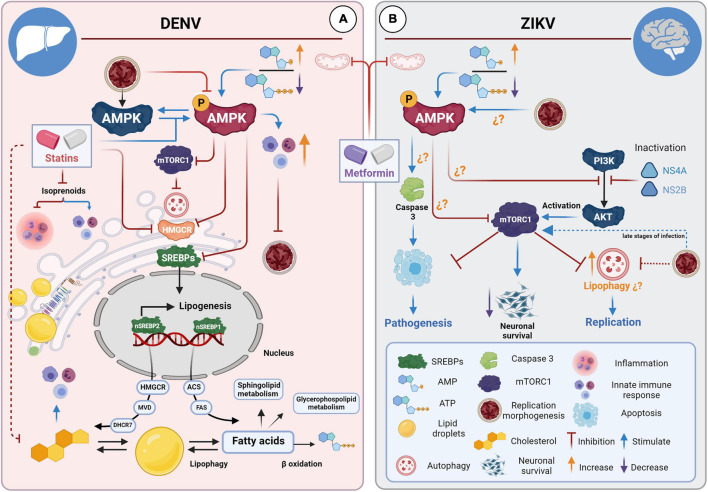FIGURE 2.
STAs and MET for the treatment of DENV and ZIKV infections. (A) STAs and MET inhibit DENV infection in hepatocytes. STAs interfere with cholesterol biosynthesis pathways through competitive inhibition of HMGCR, affecting viral replication, morphogenesis, and progeny during infections in liver cells. STAs enhance the innate immune response by inhibiting isoprenoid synthesis. MET activates the AMPK pathway, which has many downstream targets. MET reduces cholesterol and fatty acid synthesis directly (enzyme inactivation) and via the SREBP pathway. MET also induces the interferon-mediated response via AMPK. Both drugs enhance the innate immune response by connecting the mevalonate pathway and the interferon response in specific cell types. (B) MET and neuropathogenesis in the brain of ZIKV-infected mice. It has been suggested that ZIKV can up-or down-regulate cell type-dependent AMPK activity. Activation of AMPK by MET could have a dual effect: counteracting infection in tissues where the virus down-regulates AMPK activity and contributing to the pathology and cell death of tissues where AMPK activation favors viral replication. It has been hypothesized that MET could contribute to apoptosis in neuronal cells.

